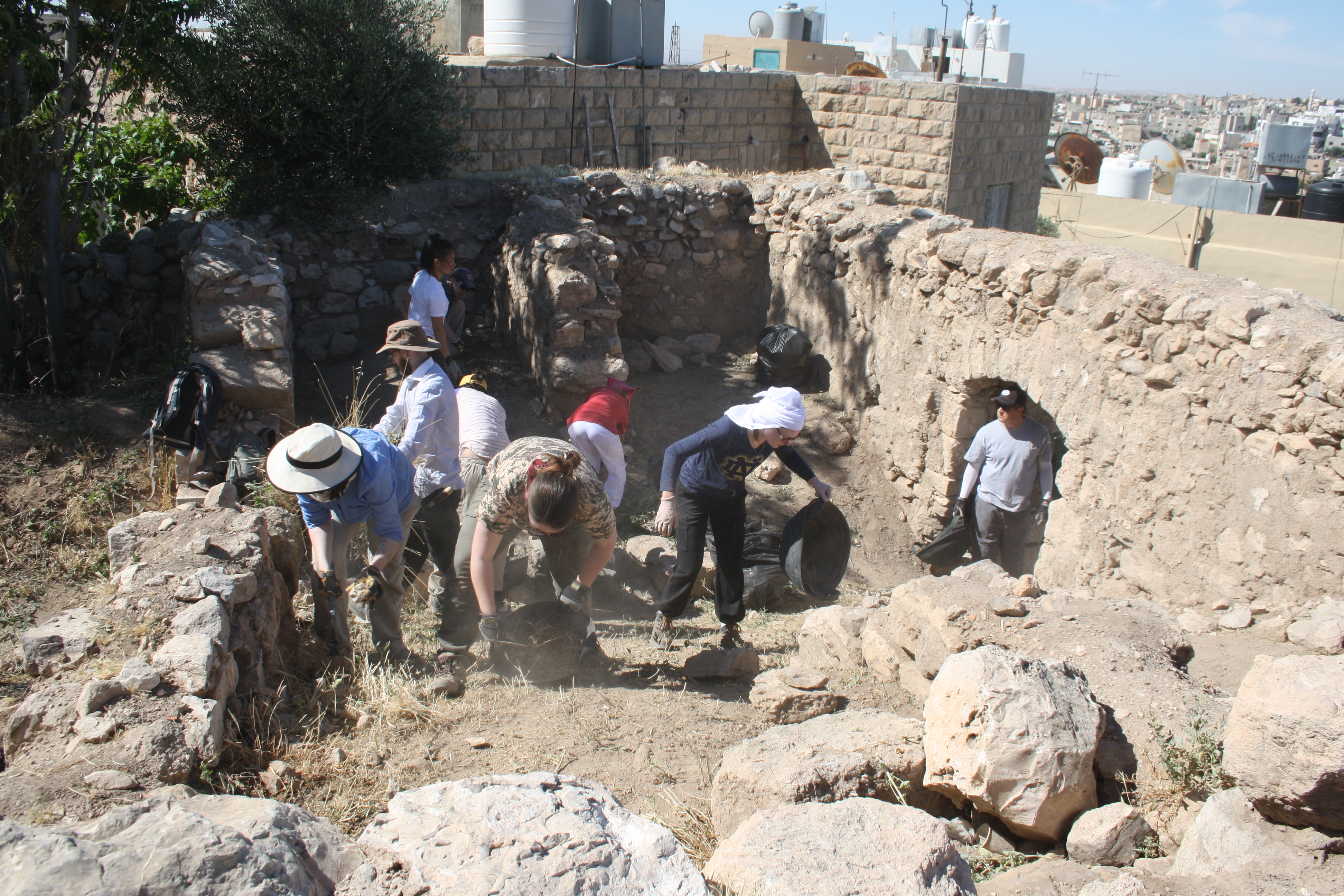By Leah Moncada

Students embrace their role as stewards of Tell Madaba during a special clean-up day (Photo by D. Foran)
We wake up at the luxurious hour of 8 am. Sunday May 24th was a national holiday in Jordan, so instead of stumbling to the Nescafe jar at 4 am, we get to wake up with the sun already streaming through our windows. On our day off, we spent the time cleaning up the Madaba acropolis, an archaeological site right in the middle of town, which was excavated by University of Toronto students (including many of the Mukhayyat staff) from 1998 to 2012.
As I huffed up the steep hill to the field, I had wry memories of fondness, when my friends and I would trudge, zombie-like, to site each day. At the top, my gaze touched upon the overgrown excavation squares, and crumbling remnants of Byzantine architecture. I thought of the coming battle against thistles, tall grass, surprise garbage stashes and treacherous drops into deep squares. But looking around, I could also warmly remember every square that I excavated, and the fun days of working in close vicinity with so many of my friends who also taught in squares around me.
The site in a state of dishevelment was somewhat saddening. We poured so many hours and such concentration into properly excavating and recording the rich history of what happened to these very stones, and now the tell was littered with broken alcohol bottles, Mr. Chips bags (which we all eyed suspiciously, unpleasant things have been found many a time in such chip bags), Pepsi bottles, and the few uproariously exclaimed about samples of birth control. As our director noted, cleaning up Tell Madaba is an exercise in the archaeology of modern youth behaviour.
Since Tell Madaba is firmly within the downtown area, the site has a very strong connection with the people of the area. As well, the team of archaeologists who returned each year have developed very strong relationships with a number of the workers and people living around the site. Many of our workers all come from the same families, and we have multiple generations pass through our site. The patriarch of the family who used to own the land upon which we dug has become something of a grandfather to us all. Each year we bring the students to his shop, where he gives them tea, loving advice, and shows them some of the famed Jordanian hospitality.
Near the end of our workday, the sun had started to take its toll on the students. As a few supervisors crossed the street to purchase water and juices, the storeowners questioned why we were cleaning up the site. “It’s just a dump where teens hang out,” they say, “why would you waste your time with that?” By showing the locals that we care enough about their history and culture to take a significant amount of time out of our day to clean up and take care of a large feature of history, the storeowners came to volunteer their time to our efforts as well. Part of the very core of archaeology is nurturing an appreciation for the physical remnants of our past, and interacting with it in respectful ways. The Tell Madaba clean-up is a lovely example of how our actions and efforts can help inspire the same appreciation and respect for history in others that we hold ourselves.
